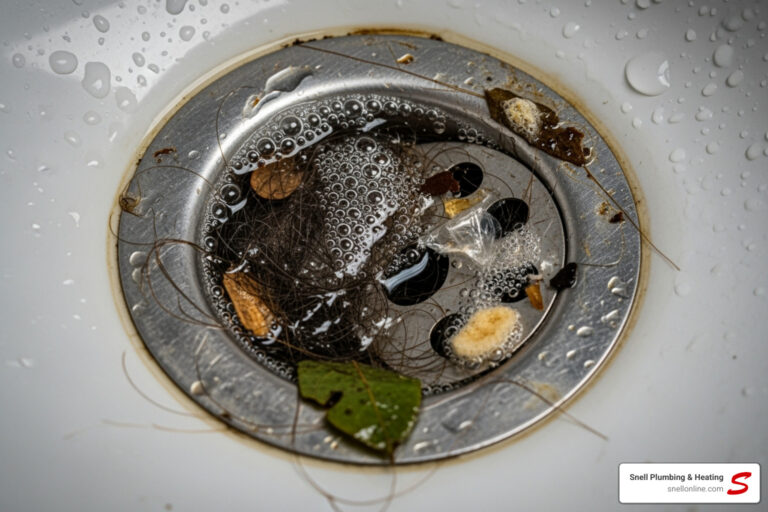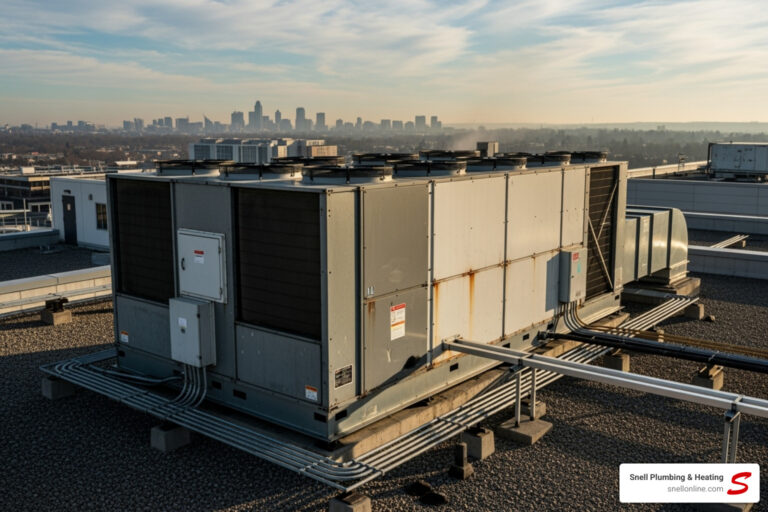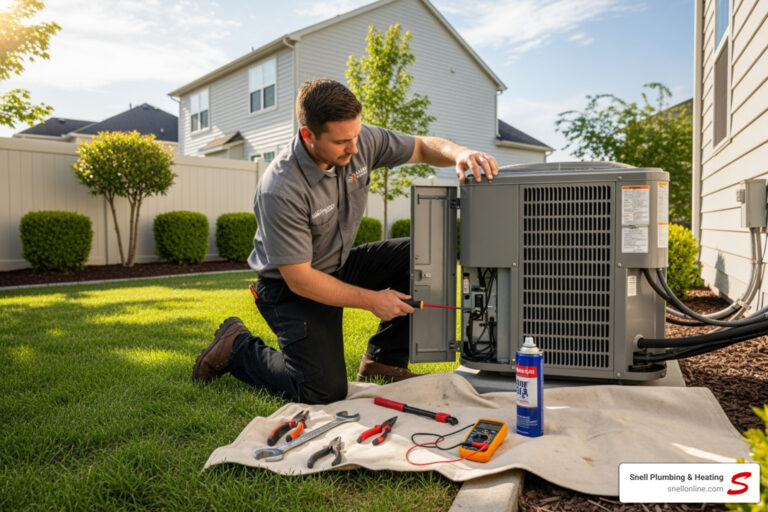The pressure relief valve is one of the most overlooked parts of a water heater, but it plays a major role in keeping your home safe. When working properly, it helps release built-up pressure from the tank, preventing potential overheating and dangerous pressure spikes. If this valve fails or starts malfunctioning, your water heater becomes less efficient and can create safety risks.
In a place like Springfield where hot water is needed year-round for laundry, dishes, and showers, a faulty pressure relief valve can disrupt daily routines fast. Many common pressure valve problems do not show obvious signs right away, which leads to small leaks or internal issues being ignored until a complete water heater failure occurs. Springfield homeowners who experience changes in water temperature or notice water pooling near their heater should have their system checked before further damage takes place.
The Role of the Pressure Relief Valve
A pressure relief valve provides a critical safety function. When the water in the tank heats up, it expands, creating pressure. If the pressure builds past a safe limit, this valve opens briefly to release some water and lower the pressure level inside the tank. It is a simple part but important to the safe operation of the entire water heater system.
If this valve gets stuck or fails to close completely, it can leak continuously. On the other hand, if it does not open when it should, pressure builds up dangerously. That can result in serious strain on the tank and piping or even unexpected bursts. The valve is usually located on the side or top of the water heater and connected to a discharge pipe that drains toward the floor.
In Springfield homes where older water heaters may still be in service, inspecting this component at regular intervals can prevent expensive repairs. A malfunctioning valve can also make your water heater use more energy, increasing power bills. It is best for homeowners to become familiar with its location, what it looks like when it is working properly, and what signs suggest it is time to call a professional.
Common Pressure Relief Valve Issues in Springfield Homes
Homeowners are often surprised by how many things can go wrong with such a small part. Being aware of the most common issues helps in deciding when a water heater repair might be needed. Here are five problems that show up frequently in Springfield households:
1. Leaking Pressure Relief Valve
A small leak might seem harmless at first, but steady dripping usually points to a bigger issue. Internal wear or an overstressed valve can let water escape constantly. Leaking water can lead to corrosion around the tank base or flooring damage nearby.
2. Poor Installation
If the valve or its discharge pipe was not installed correctly, it may not work as needed. For example, an incorrect pipe angle or missing fittings can prevent water from being discharged safely. Poor installation can eventually create both mechanical and safety problems.
3. Sediment Buildup
Springfield’s water supply contains natural minerals, and over time, that can leave deposits inside the water heater. These minerals collect along the tank base and around the valve. This buildup may keep the valve from opening or closing smoothly.
4. Corrosion
Rust is another serious concern. If the valve or discharge pipe begins to corrode, it may weaken the components around it. Corrosion often shows up as orange or brown staining, especially near the valve housing.
5. Thermal Expansion Issues
Thermal expansion happens when water heats up and expands, creating excess pressure. If your home does not have a properly sized expansion tank or if one is not working efficiently, the pressure relief valve ends up doing too much of the work. This can lead to early valve wear or failure.
Even one of these problems can put strain on your water heater system. It is better to address them before they cause noticeable failures or safety hazards in your Springfield home.
Signs Your Pressure Relief Valve Needs Repair
Even when a water heater seems to run smoothly, subtle warning signs can suggest the pressure relief valve is not doing its job properly. Waiting too long to address a malfunctioning valve can lead to water damage, high pressure inside the tank, or loss of hot water when it is needed most.
Here are a few clear indicators Springfield homeowners should watch for:
– Water pooling near the base of the tank or around the valve
A constant drip or puddles forming nearby usually means the valve is leaking. This can come from a damaged seal, a corroded pipe, or high system pressure that the valve is struggling to handle.
– Unusual hissing or popping noises
Sounds that seem to come from the tank or valve could mean pressure is being released when it should not be, or that sediment buildup is affecting performance.
– Needing to reset the system often
If the tank frequently triggers a reset or shows changes in pressure or temperature, the relief valve might be stuck or unable to release excess pressure effectively.
Instead of ignoring these symptoms or attempting to fix them without the right equipment, it is better to bring in trained technicians. Safety valves are a built-in line of protection. When they stop functioning the way they should, water heater systems can quickly turn into a source of stress, repairs, and increased utility use.
Preventive Care to Keep Your System Running
Keeping your water heater’s pressure relief valve in good shape does not have to be complicated. Regular care can reduce the chance of unexpected problems and help extend the life of your system. While some maintenance tasks must be handled by professionals, there are simple steps Springfield homeowners can take to help keep things running smoothly.
– Test your valve once or twice a year
Carefully lifting the test lever attached to the top of the valve should allow water to release briefly, then stop. If water continues to drip or there is no movement at all, the valve likely needs replacement.
– Flush the water heater tank every 6 to 12 months
This helps remove sediment buildup and improves both heating performance and valve reliability. Sediment is not just bad for internal parts. It also adds stress to how the pressure relief valve functions.
– Schedule annual water heater servicing
Regular professional checks can catch early signs of valve wear, rust, or system imbalance. These check-ins are especially helpful for homes in Springfield with hard water, older plumbing, or households that use a lot of hot water each day.
By staying on top of basic maintenance, homeowners can reduce the risk of valve failure. It also gives them peace of mind knowing the system is safe and more reliable throughout the year.
Protecting Your Hot Water System
A failing pressure relief valve can go unnoticed until it creates a serious problem. Between leaks, buildup, and worn-out components, there are a handful of ways your water heater might show signs of distress. Knowing what to look for and what steps to take ahead of time can prevent system damage and avoid bigger issues later.
Springfield residents depending on steady hot water for daily needs should treat these early signs seriously. Whether it is hissing sounds, small puddles under the tank, or unexpected heating issues, these point toward a valve that is no longer performing correctly. Regular inspections and timely repairs go a long way in keeping your system safe and efficient. Being proactive now helps avoid frustrating breakdowns later.
If your hot water system shows signs of strain, addressing issues early helps prevent further damage and inconvenience. Homeowners in Springfield experiencing pressure relief valve troubles can benefit from prompt water heater repair in Springfield to keep their system running safely and efficiently. At Snell Plumbing & Heating, we understand how important it is to maintain a reliable hot water supply, and our professionals can help restore your system’s performance. For a quick estimate or to book a service visit, please contact us today.





